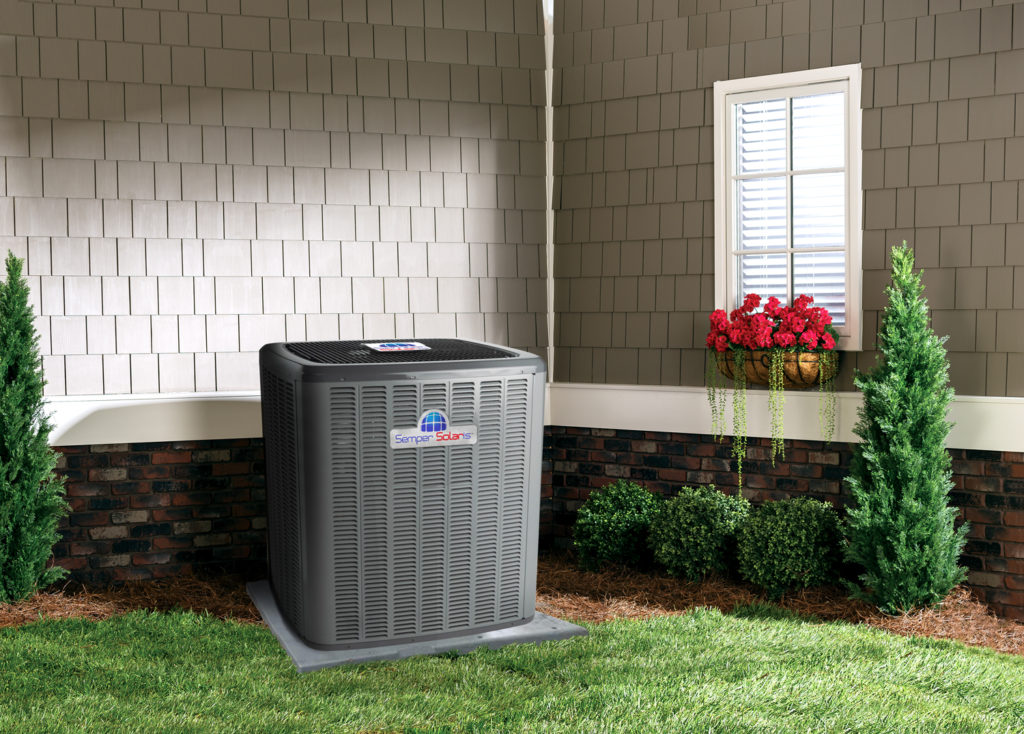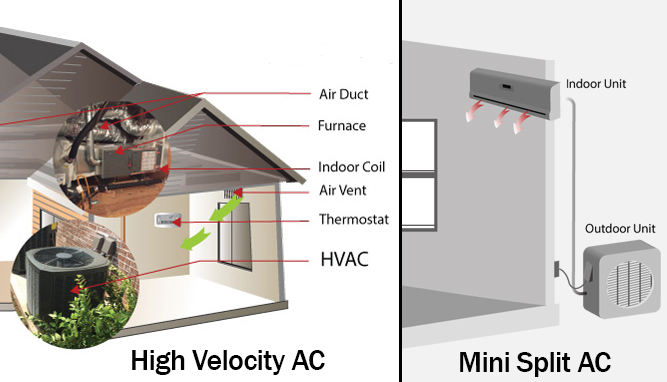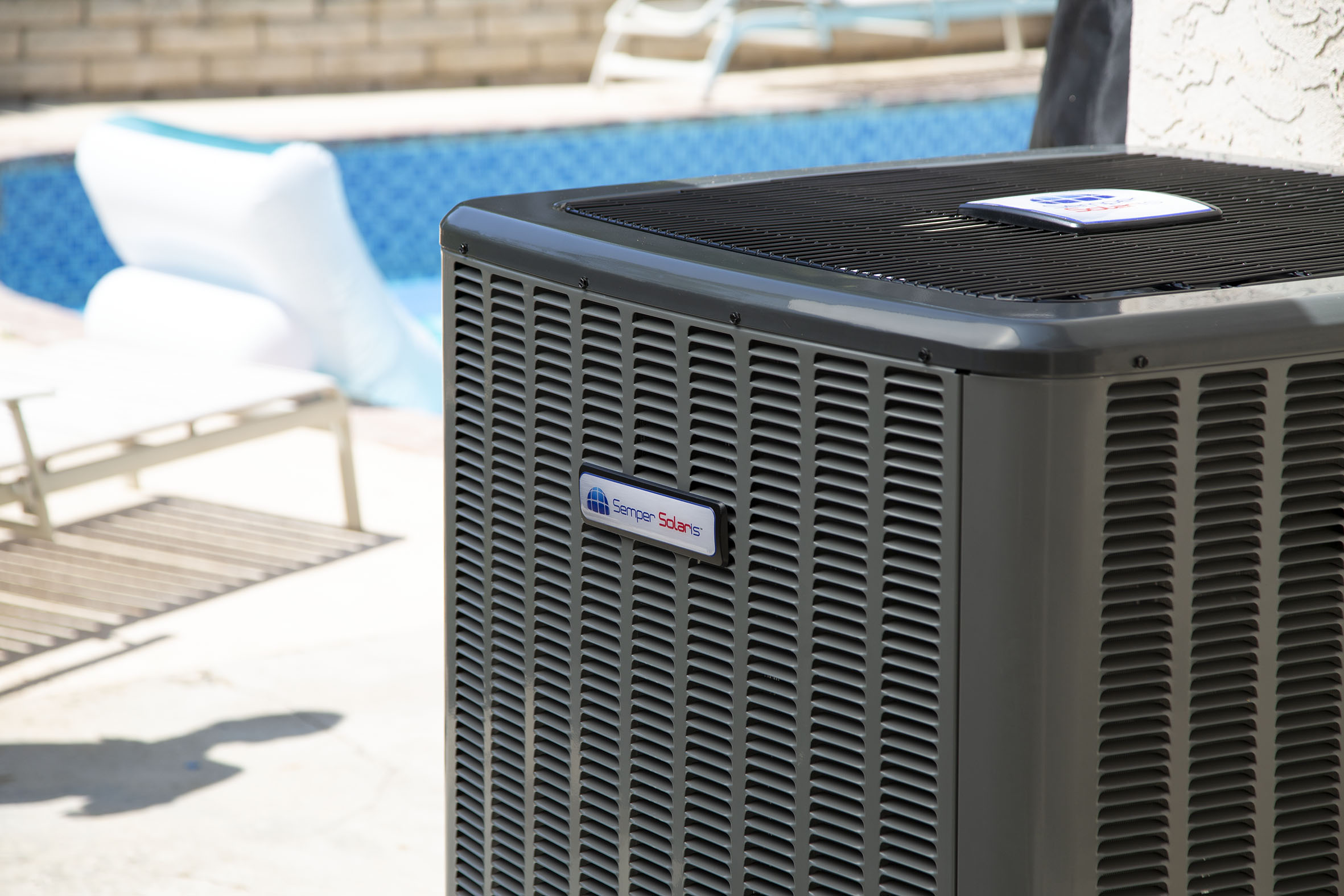When it comes to staying cool in states such as California, choosing the best air conditioning unit for your home can quickly become a confusing experience especially since there is a large selection to choose from.
When you do research, you are most likely to come across the two most popular options which include Ductless Mini-Split & Central Air. The biggest difference between the two air conditioning systems are the look, the price, and the amount of annual maintenance.
Depending on your specific needs and the size of your home, you can make your HVAC purchase decision a bit easier by reading this article.

Central Air Conditioning
One of the most common types of air conditioning units that are in homes are known as central air conditioning (or central A/C). The central air conditioning system works by cooling air at a central location. From there, the air is distributed to and from rooms by one or more fans and ductwork.
They are usually long lasting and virtually invisible, but they do require maintenance here and there.
Advantages of Central Air
- Consistent temperature everywhere in your home, all year long.
- Air pushed through the ducts if filtered. This means higher indoor air quality.
- The possibility of both a heating and air conditioning combo unit.
Disadvantages of Central Air
- Higher electricity bills – According to Energy.gov, “In an average air-conditioned home, air conditioning consumes more than 2,000 kilowatt-hours of electricity per year.”
- Keeping indoor air quality clean means frequent duct maintenance
- If you don’t have ductwork, you will need to have it installed.
Ductless Mini-Split System

Another common type of air conditioning used in homes are known as ductless, mini split-system air conditioners (mini splits). These applications are great choices for smaller homes and apartments where installing ductwork is not feasible. Instead, it uses an individual fan and evaporator unit for each room it will be installed in.
These units are a bit quieter, energy efficient, and more adaptable than traditional central air systems.
Advantages of Ductless Mini-Split System
- Small size & flexible which allows homeowners to create zones of comfort within their home.
- Energy efficient which means far less electricity used compared to an old school window unit.
- Quieter which means much less ambient noise compared to central air or window units.
Disadvantages of Ductless Mini-Split System
- Ductless systems are a bit costly when you analyze the BTU per hour performance compared to central air systems.
- There must be a place to drain the water near the outdoor unit
- Some homeowners do not like the appearance of the Ductless system.
- Cooling capabilities are limited and not a good choice for larger homes.
What Air Conditioning System Is Best For My Home?
Based on the information above and the size of your home, you should be able to make an easy decision on whether you need central air or a ductless mini-split system. There are both advantages and disadvantages when it comes to both A/C systems. Carefully considering your circumstances will let you know which system to go with.
In simple words, a ductless mini-split system can be a great choice for homes that are smaller in size and don’t have ductwork. For bigger homes that do have ductwork, central air conditioning may be the better option.
For more information on HVAC systems and what options are available to you, contact Semper Solaris today and one of our experienced
